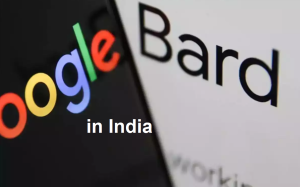
Google’s new AI-powered text completion tool called Bard (https://bard.google.com) is now available to users in India. The new tool provides several features that make it stand out from other similar tools, such as OpenAI’s ChatGPT and Microsoft’s Bing Chat which is built on top of ChatGPT.
Bard can be used for a variety of tasks which is also done by ChatGPT, including some of the following:
- Answering questions in a comprehensive and informative way, even if they are open ended, challenging, or strange.
- Generating different creative text formats of text content, like poems, code, scripts, musical pieces, email, letters, etc.
- Translating languages
- Writing different kinds of creative content
- Coding in various different programming languages such as like C++, Go, Java, JavaScript, Python, TypeScript, a Google Sheets functions, etc
However, Bard goes beyond its competitor, ChatGPT, by allowing users to do some of the following:
- Multiple drafts of prompts at the same time: You can create multiple drafts of prompts at the same time and compare them to see which one produces the best results.
- Export Python code generated in Bard directly to Google Colab and test it out: You can export Python code generated in Bard directly to Google Colab and test it out. This is a great way to quickly and easily test out new ideas.
With Bard’s launch in India, users can now explore its unique features and experience the benefits of its integration with Google’s ecosystem. The tool is available for free and can be accessed through Google’s website, https://bard.google.com.
By using both Google Bard and ChatGPT, users can benefit from the unique features of each and have access to a wider range of functionalities. Whether it’s programming or generating human-like responses, users can choose the tool that best suits their needs and use both to enhance their productivity and creativity.
If you’re interested in learning more about using Google Bard and OpenAI ChatGPT & Microsoft Bing, I invite you to reach out and inquire about our one-day workshop and training sessions. I will guide you through the features and functionalities of both tools, providing you with hands-on experience and practical skills that you can apply to your writing and programming projects.
- Questions to Ask When Thinking Like a Product Leader - July 3, 2025
- Three Approaches to Creating AI Agents: Code Examples - June 27, 2025
- What is Embodied AI? Explained with Examples - May 11, 2025
I found it very helpful. However the differences are not too understandable for me